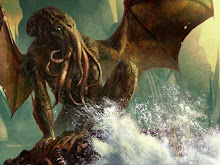Every year there's talk of relocation of struggling NHL teams. Typically the hope is that teams such as the Phoenix Coyotes, the Atlanta Thrashers, or the Florida Panthers will move to Canada to replace the teams it has lost in the last 20 years.
One argument I've heard is that the Canadaian cities just aren't big enough to have a team that would be financially successful in the today's NHL. But how big are these cities, exactly?
Let's skip the 5 largest cities in Canada (Toronto, Montréal, Clagary, Ottawa, and Edmonton) because they already have teams, as well as the 6th largest city, Mississauga, because it's smashed up next to Toronto.
The 7th largest city in Canada is Winnipeg, with a population* of 633,451. Winnipeg used to be home of the Jets, who became the Phoenix Coyotes in 1996.
The 8th largest city in Canada is Vancouver, and it is the home of the Canucks, so we shall skip it.
The 9th largest city in Canada is Hamilton, population 504,559. There have been annual efforts by Canadian billionaire Jim Balsillie to move teams here and it's easy to see why. There are 4 other NHL teams withing driving distance from Hamilton. There is no way a team here wouldn't be successful. Too bad the NHL owners all hate Balsillie.
And finally the 10th largest city, and last one with any hope of getting an NHL team, is Québec City, with a population of 491,142.
Winnipeg, Hamilton, and Québec City all have populations larger than a lot of US cities, such as Miami, FL (433,136**); Raleigh, NC (405,612); St. Louis, MO (356,587); Tampa, FL (343,890); Anaheim, CA (337,896); Pittsburgh, PA (311,647); and Buffalo, NY (270,240), all cities with NHL teams. In fact, Winnipeg has more people in it than Denver, Nashville, DC, and Atlanta (and almost as many people as there are in Baltimore).
So, if all other things were equal, then why the hell aren't these teams moving to Canada? Because all other things aren't equal, sadly. For starters, the populations don't include metropolitan areas. Furthermore, Canadians are generally poorer than Americans. Then there are TV contracts, travel costs, etc, etc, etc. But damnit, let's get some teams moved back up to Canada.
*Canadian populations as of 2006
**US populations as of 2009
Thursday, February 24, 2011
Thursday, February 3, 2011
English Dropped All The Cool Letters
After the English language stopped using runes for letters, they switched to the Roman alphabet. However, there was no J, K, Q, V, or Z. But, the Old English alphabet had some pretty awesome letters in it, which we dropped, sadly.
æ
This letter sounds like a mix between a and e. Who knew? You can still find it kicking around from time to time in English, but Danish, Icelandic, and Norwegian still use it constantly.
ð
This letter, eth, sounds like the th in "them". It still exists in Icelandic and Faroese.
ᵹ
Insular G was basically a second g, borrowed from Ireland. It still can be found in traditional Gaelic.
ſ
Long s was basically a second s for if there was an s at the beginning or middle of a word. Its cousin, the German letter ß, is all the rage.
þ
Thorn (it even has a great name) is like the th in thick.
ƿ
Wynn was basically a holdover from the rune days. It lost out to W, since they eventually had the same sound.
æ
This letter sounds like a mix between a and e. Who knew? You can still find it kicking around from time to time in English, but Danish, Icelandic, and Norwegian still use it constantly.
ð
This letter, eth, sounds like the th in "them". It still exists in Icelandic and Faroese.
ᵹ
Insular G was basically a second g, borrowed from Ireland. It still can be found in traditional Gaelic.
ſ
Long s was basically a second s for if there was an s at the beginning or middle of a word. Its cousin, the German letter ß, is all the rage.
þ
Thorn (it even has a great name) is like the th in thick.
ƿ
Wynn was basically a holdover from the rune days. It lost out to W, since they eventually had the same sound.
Labels:
What I learned today
Subscribe to:
Posts (Atom)

